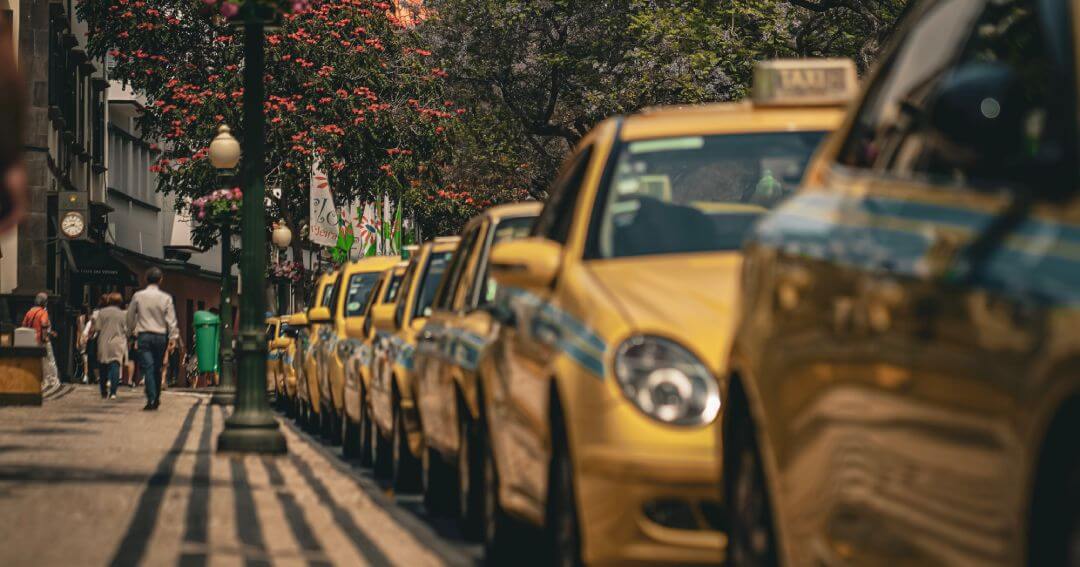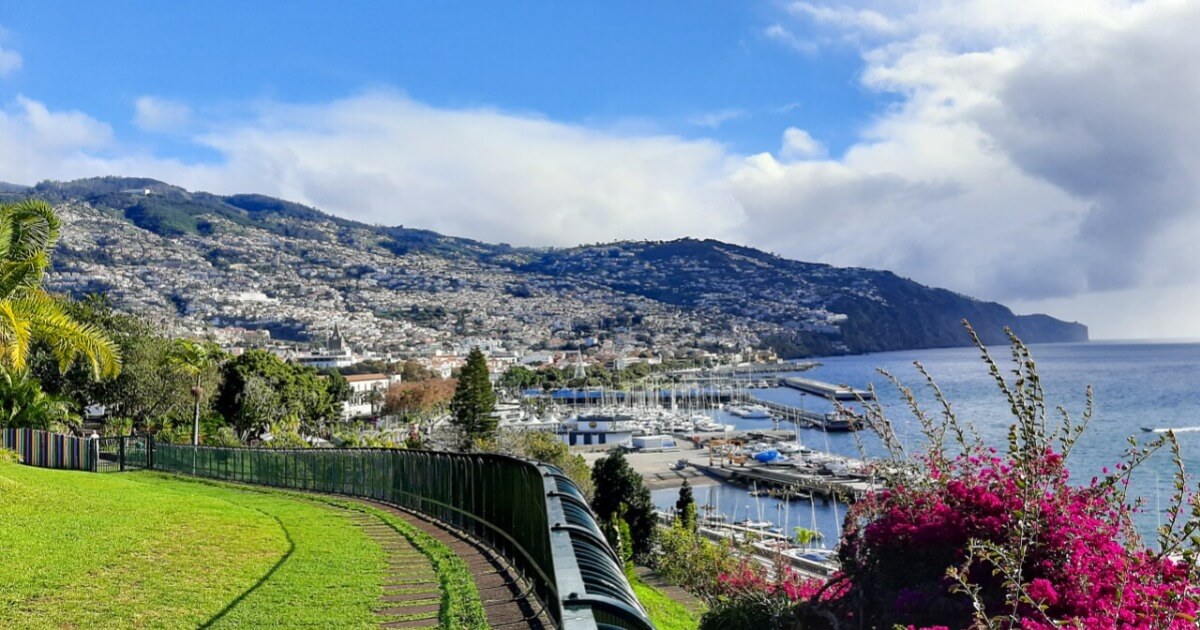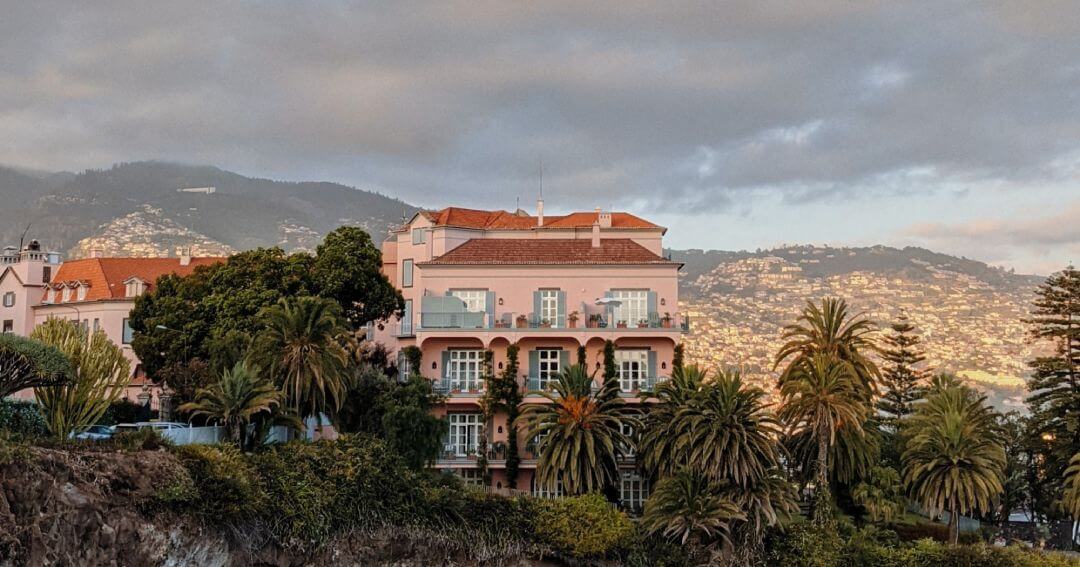Madeira, a captivating island in the Atlantic Ocean, is an irresistible destination for expats seeking a new chapter in their lives. Its stunning landscapes, mild climate, and welcoming community make it an ideal place to call home. In this comprehensive guide, we will delve into various aspects of living in Madeira, providing valuable insights and practical information to ensure a smooth transition to this enchanting island.
Why Choose Madeira as an Expat Destination?
Madeira boasts a myriad of reasons why expats are drawn to its shores. Firstly, its pleasant climate, with mild winters and refreshing summers, makes it an attractive choice for those seeking a year-round temperate environment. The island’s lush greenery, breathtaking cliffs, and pristine beaches offer an unparalleled natural beauty that will captivate expats seeking tranquillity and serenity.
Moreover, Madeira is renowned for its high standard of living and excellent quality of life. With a robust healthcare system, modern infrastructure, and a low crime rate, expats can feel secure and enjoy a comfortable lifestyle. The island also offers diverse recreational activities, including hiking, water sports, and golf, ensuring that expats can indulge in their passions and embrace a balanced and fulfilling life on the island.
More information about why should you be Moving to Madeira Island.
Legal Requirements for Living and Working in Madeira
Before embarking on your journey to Madeira, you must familiarize yourself with the legal requirements for living and working on the island. As an expat, you will need a valid passport and a residence permit to establish yourself in Madeira. The Portuguese government offers various types of residence permits, such as the Residence Visa for investment purposes, the Residence Visa for self-employment, and the Residence Visa for work purposes.
To obtain a residence permit, you must provide the necessary documents, such as proof of income, health insurance coverage, and a clean criminal record. It is advisable to seek assistance from a local immigration lawyer or a relocation agency to navigate the application process smoothly and ensure compliance with all legal requirements.
Finding Accommodation in Madeira
Madeira offers a range of accommodation options to suit various tastes and budgets. Whether you prefer the vibrant city life of Funchal or the tranquillity of a coastal village, there is something for everyone on this island paradise. Rental prices in Madeira are generally lower than other popular European destinations, making it an attractive choice for expats.
To find accommodation in Madeira, you can explore online real estate platforms, consult local real estate agents, or join expat groups on social media platforms. It is advisable to visit the island before making a final decision to ensure that the location and amenities meet your preferences. Additionally, renting a property in Madeira usually requires a deposit and signing a lease agreement, so it is crucial to review the terms and conditions carefully before committing.
Healthcare System and Insurance in Madeira
Madeira boasts a comprehensive healthcare system that ensures residents and expats have access to quality medical care. The Serviço Regional de Saúde (SESARAM) is the public healthcare system in Madeira, providing a range of services, including hospitals, clinics, and pharmacies. Expats can also opt for private healthcare, which offers shorter waiting times and a wider choice of doctors and specialists.
As an expat in Madeira, it is essential to have health insurance coverage to access healthcare services. While the SESARAM is generally free, private healthcare can be more expensive. Therefore, it is advisable to compare different insurance plans and choose one that suits your specific needs and budget. Researching and purchasing health insurance coverage before your arrival in Madeira will ensure that you are well-prepared to navigate the healthcare system on the island.
Education Options for Expat in Madeira
For expat families relocating to Madeira, ensuring a quality education for their children is a top priority. The island offers a variety of educational institutions, including international schools, bilingual schools, and public schools. International schools provide an education that follows international curricula and offers a multicultural environment.
Public schools in Madeira follow the Portuguese curriculum and offer education in Portuguese. However, expat children may face language barriers when integrating into the local school system.
When choosing an educational institution, it is essential to consider factors such as curriculum, language of instruction, extracurricular activities, and proximity to your place of residence. Visiting schools, meeting with teachers, and seeking recommendations from other expat families can help you make an informed decision and ensure your children receive a quality education in Madeira.
Cost of Living in Madeira
Understanding the cost of living in Madeira is crucial for planning your budget and ensuring financial stability. While the cost of living can vary depending on individual lifestyles, Madeira offers a more affordable lifestyle than other European destinations.
Housing costs in Madeira are relatively lower, with rental prices for apartments and houses being more affordable compared to major European cities. Grocery prices are also reasonable, especially if you opt for local produce and markets. However, imported goods may be slightly more expensive due to transportation costs.
Transportation costs in Madeira are also relatively affordable. The island has a reliable and efficient public transportation system, including buses and taxis, which offer affordable fares.
Dining out and entertainment costs in Madeira can vary depending on your preferences. The island offers a wide range of restaurants and cafes catering to different budgets. Local cuisine is affordable and delicious, allowing you to savour traditional Madeiran dishes without breaking the bank. Additionally, entertainment options, such as cultural events, concerts, and outdoor activities, are often reasonably priced or even free, allowing you to enjoy the vibrant social scene of Madeira without straining your budget.
It is important to note that the cost of living in Madeira may vary depending on the region and your lifestyle choices. However, Madeira offers a more affordable and cost-effective living environment compared to many other European destinations, making it an attractive option for expats seeking a balanced and financially sustainable life.
Transportation and Getting Around in Madeira
Madeira provides a convenient and accessible transportation system, allowing expats to navigate the island easily. The primary mode of public transportation in Madeira is the bus system, which covers various routes across the island, including major towns, tourist attractions, and the airport.
The bus fares in Madeira are affordable, and different ticket options are available, including single-journey tickets, daily passes, and monthly passes.
In addition to buses, taxis are readily available in Madeira and offer a convenient mode of transportation, especially for shorter distances or when travelling with heavy luggage. The taxis in Madeira are metered, and the government regulates the fares. It is essential to ensure that the taxi driver activates the meter at the beginning of the journey to avoid any potential issues.
For those who prefer the freedom and flexibility of having their own vehicle, renting a car is a popular option in Madeira. The island has several car rental companies that offer a wide range of vehicles to suit different needs and budgets. Renting a car allows you to explore the island at your own pace, discover hidden gems, and access remote areas where public transportation may not be easily reachable.
Madeira also offers a well-maintained road network, making driving a pleasant and convenient experience. However, it is essential to note that some roads in Madeira can be steep, narrow, and winding, especially in rural areas. It is advisable to familiarize yourself with the traffic rules, signage, and road conditions before embarking on a road trip.

Expat Communities and Social Life in Madeira
One of the most valuable aspects of being an expat in Madeira is connecting with like-minded individuals and building a supportive network. Madeira has a vibrant expat community, with people from various backgrounds and nationalities coming together to create a warm and inclusive environment.
Joining expat groups and associations can be a great way to meet fellow expats and engage in social activities. Several expat communities in Madeira, such as the Madeira Expat Community and the British Madeira Expat Group, organize regular events, outings, and social gatherings.
Additionally, Madeira offers a diverse range of recreational activities and cultural events that provide opportunities for socializing and connecting with both expats and locals. From traditional festivals and concerts to outdoor adventures and sports clubs, there is something for everyone on this vibrant island.
Engaging with the local community and immersing yourself in Madeiran culture can also enrich your expat experience. Learning the Portuguese language, participating in local traditions, and exploring the island’s rich history and heritage can help you forge deeper connections and fully embrace the Madeiran way of life.
Working Opportunities and Job Market in Madeira
Madeira offers a variety of working opportunities for expats, particularly in sectors such as tourism, finance, and international business. The island has a thriving tourism industry, attracting visitors worldwide and creating a demand for hospitality and service-related jobs. Additionally, Madeira has become a hub for international companies and provides attractive tax incentives for international businesses, making it an appealing destination for professionals seeking career opportunities in these fields.
To work in Madeira as an expat, it is essential to have the necessary work permits and legal documentation. The Portuguese government has implemented measures to attract foreign investment and skilled professionals, making the process of obtaining work permits and visas relatively straightforward.
Networking and building professional connections can also be beneficial in finding job opportunities in Madeira. Engaging with local business associations, attending industry events, and utilizing online job platforms can help you explore potential job openings and connect with employers.
It is important to note that the job market in Madeira may be competitive, especially for specific sectors. It is advisable to research the job market, understand the local business landscape, and assess your skills and qualifications to ensure a successful job search in Madeira.
Starting a Business as an Expat in Madeira
Madeira offers a favourable business environment, making it an attractive destination for expats looking to start their businesses. The island has implemented various incentives and tax benefits to encourage entrepreneurship and foreign investment.
One of the key advantages of starting a business in Madeira is the International Business Center (IBC) regime, which provides tax advantages for companies operating in specific sectors, such as international services, manufacturing, and digital technologies. The IBC regime offers a reduced corporate tax rate, exemption from withholding tax on dividends, and other incentives that can significantly benefit expat entrepreneurs.
To start a business in Madeira, expats must follow the necessary legal procedures, including registering the company, obtaining the required permits and licenses, and adhering to local regulations. Seeking guidance from local business consultants or lawyers can help streamline the process and ensure compliance with all legal requirements.
Additionally, networking and building connections with local entrepreneurs and business associations can provide valuable insights and support in navigating the business landscape in Madeira. Collaborating with other professionals and leveraging local expertise can contribute to the success of your business venture on the island.
Exploring the Natural Beauty and Attractions of Madeira
Madeira is a paradise for nature lovers and outdoor enthusiasts, offering a diverse range of natural landscapes and attractions. From towering cliffs and dramatic coastlines to lush forests and picturesque levadas (irrigation channels), the island is a haven for those seeking unparalleled natural beauty.
One of the must-visit attractions in Madeira is the Laurissilva Forest, a UNESCO World Heritage Site and one of the most extensive laurel forests in the world. This ancient forest is home to a rich biodiversity, including unique flora and fauna. It offers breathtaking hiking trails that allow you to immerse yourself in its natural splendour.
The levadas of Madeira are another iconic feature of the island’s landscape. These narrow water channels wind through mountains and valleys, providing scenic walking paths that offer panoramic countryside views. Exploring the levadas is a popular activity among locals and expats, allowing you to discover hidden waterfalls, charming villages, and stunning vistas.
For those seeking adventure, Madeira offers a range of outdoor activities, including canyoning, paragliding, and mountain biking. The island’s rugged terrain and diverse ecosystems provide the perfect playground for adrenaline junkies and nature enthusiasts.
In addition to its natural beauty, Madeira also boasts a rich cultural heritage and historical landmarks. The city of Funchal, the capital of Madeira, is a treasure trove of history, with its charming old town, historic buildings, and museums. Exploring the colourful markets, sampling local delicacies, and attending traditional festivals are great ways to immerse yourself in the vibrant culture of Madeira.
Cultural Aspects and Traditions in Madeira
Madeira has a rich cultural heritage deeply rooted in its history and traditions. The island’s inhabitants, known as Madeirans, take pride in their unique customs and celebrate them through various cultural events and festivities.

One of the most iconic traditions in Madeira is the Festa da Flor (Flower Festival), held annually in the spring. During this vibrant festival, the streets of Funchal are adorned with intricate flower displays, and locals and visitors alike dress in colourful costumes to celebrate the island’s floral abundance. The festival also features parades, concerts, and exhibitions, fascinating a captivating insight into Madeiran culture.
Another significant cultural aspect of Madeira is its traditional music and dance. The island is known for its folk music, characterized by the use of traditional instruments such as the braguinha (a small guitar) and the rajão (a larger guitar-like instrument). The Bailinho da Madeira, a traditional dance accompanied by lively music, is a popular cultural expression that reflects the spirit and joy of the Madeiran people.
Madeira also has a strong culinary tradition, with its cuisine influenced by Portuguese, African, and Mediterranean flavours. Traditional Madeiran dishes include Espetada (grilled skewered meat), Bolo do Caco (a type of bread), and the famous Poncha (a traditional alcoholic beverage). Exploring the local cuisine and indulging in traditional dishes is a delightful way to experience the cultural richness of Madeira.
Safety and Security Considerations in Madeira
Madeira is known for its safety and security, making it a peaceful and secure place to live as an expat. The island has a low crime rate, and the local authorities take proactive measures to ensure the safety and well-being of residents and visitors.
However, it is always advisable to exercise caution and follow basic safety precautions, as you would in any other destination. Keep your personal belongings secure, be aware of your surroundings, and avoid walking alone in unfamiliar or poorly lit areas, especially at night.
It is also recommended to have appropriate health and travel insurance coverage to ensure access to healthcare services and assistance in emergencies. Familiarize yourself with the local emergency services numbers, such as the police, ambulance, and fire department, to ensure prompt assistance if needed.
If you would like more detailed information about the opportunities available as an investor or expat, please do not hesitate to Book a Consultation with us.

Miguel Pinto-Correia holds a Master Degree in International Economics and European Studies from ISEG – Lisbon School of Economics & Management and a Bachelor Degree in Economics from Nova School of Business and Economics. He is a permanent member of the Order of the Economists (Ordem dos Economistas)… Read more





